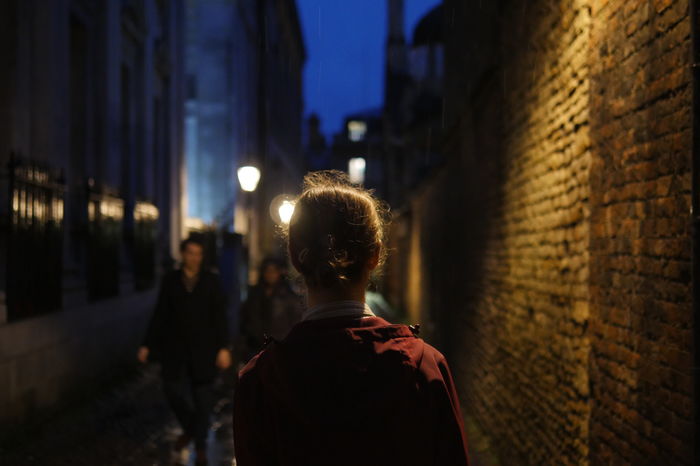Deck the halls and do the dishes
The Christmas magic is sustained by invisible female labour, argues Maddie Harding

Christmas is celebrated around the world as a time of festivity, joy, and generosity. From the carols we sing to the movies we watch, Christmas is presented as a period of peace, a time when people travel across the globe to reunite with their loved ones. But, for many women, Christmas is anything but peaceful. It is the time of the year that reveals the gendered dynamics of household admin and caregiving most blatantly.
The Office of National Statistics estimates that employed mothers spend double as much time a day on childcare than fathers, and two thirds more time on housework. It is therefore unsurprising that the time of year that depends most on these activities would place such an enormous burden on women. It’s ironic that Father Christmas is a man, because it is women who spend Christmas collating Christmas lists, purchasing presents, wrapping gifts, and stuffing stockings. It is this “emotional labour,” as sociologist Arlie Hochschild puts it, that is not just disproportionately placed on women, but is expected of them at Christmas time.
“Emotional labour is expected of women at Christmas”
This expectation to “deliver” Christmas means that the contribution of women is often invisible and overlooked. Just as ‘Santa Claus’ delivers presents and disappears into the night, so too does the labour of women in the home go unseen. Indeed, I’ve grown up with magical Christmases, full of love and laughter and presents. But as I’ve grown older, I’ve realised that these ‘magical’ festivities are the result of my mum spending the entire month of December decorating the house, organising family visits, collating Christmas lists, purchasing the presents, stuffing stockings, and cooking Christmas dinners.
A peaceful and joyful Christmas is often predicated on the undervalued and uncompensated work of women. This does not mean that Christmas is not a wonderful, happy time, but it does mean that we need to recognise the burden placed on women as emblematic of an unjust system. Because in twenty years time it might be me with a full time job, three screaming children, and a partner who is too ‘busy’ at work to help me decorate the house.
“Chestnuts don’t roast over an open fire without someone’s mum spending three hours in Tesco doing the Christmas shop”
In fact, the inequality of domestic labour within the home is so entrenched that if women are to explode or get angry out of sheer exhaustion or stress related to Christmas, they’re labelled crazy, or told they’re overreacting. This only reproduces gender roles at home for children to observe, and reinforces them for decades of Christmases to come. It is often joked that the first time that fathers see their children’s presents is on Christmas morning; what does this teach their children?
Indeed, chestnuts don’t roast over an open fire without someone’s mother spending three hours in Tesco doing the Christmas shop. Mariah Carey might not be asking for much this Christmas, but her mum probably bought her a present in the first week of December. It’s definitely not a silent night for the mum who’s been up till 2am writing Christmas cards. And the holly on your own front door might be the prettiest sight to see, but who got it from the garden centre? Given this context, it’s no wonder that the smallest mishaps, like forgetting to boil the potatoes before roasting them, or smashing an ornament, often trigger such fury from mothers who’ve spent the entire month bending over backwards to serve up a ‘magical’ Christmas on a plate.
Regardless of its gender dynamics, Christmas is above all else a time of reflection and gratitude. Christian or not, at the heart of the story of Christmas is a mother and the child she brought into the world. This does not excuse the injustice of the domestic labour expected of women, nor a patriarchy that works in intersectional ways to oppress women in the home. But, Christmas does present an opportunity to appreciate what others do for us and to give back to those who care for us.
So, this Christmas period is an opportunity for me to say thank you to my mum. It’s a chance for me to recognise the effort she goes to in order to make Christmas wonderful for me each year. To acknowledge that the responsibility placed on her is unfair and that it needs to be confronted, but in the meantime, simply to recognise that it exists. To give thanks for everything that mums do at Christmas is to make their emotional labour a little less invisible.
 Comment / Cambridge’s tourism risks commodifying students18 April 2025
Comment / Cambridge’s tourism risks commodifying students18 April 2025 News / Cambridge student numbers fall amid nationwide decline14 April 2025
News / Cambridge student numbers fall amid nationwide decline14 April 2025 News / Greenwich House occupiers miss deadline to respond to University legal action15 April 2025
News / Greenwich House occupiers miss deadline to respond to University legal action15 April 2025 Comment / The Cambridge workload prioritises quantity over quality 16 April 2025
Comment / The Cambridge workload prioritises quantity over quality 16 April 2025 Sport / Cambridge celebrate clean sweep at Boat Race 202514 April 2025
Sport / Cambridge celebrate clean sweep at Boat Race 202514 April 2025





